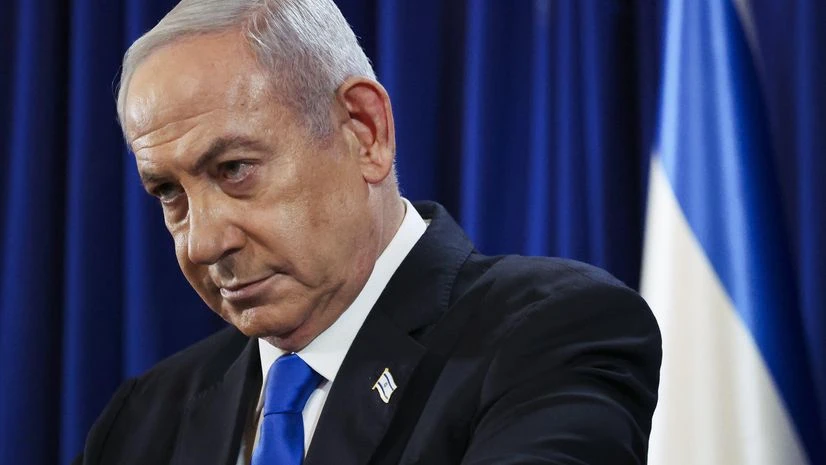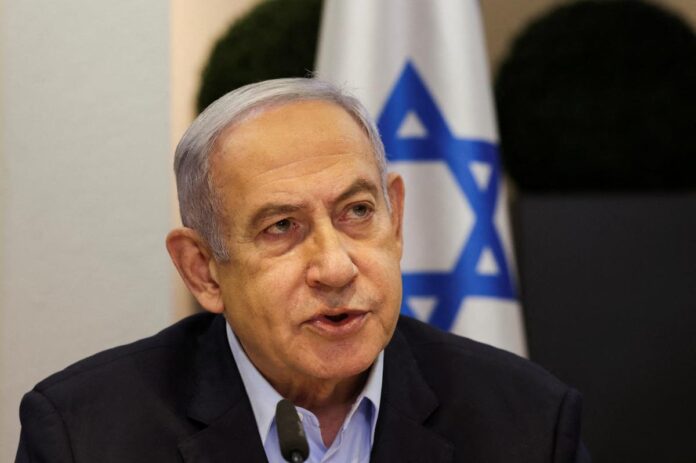In a shocking escalation of regional tensions, Israeli Prime Minister Benjamin Netanyahu’s home was targeted in a drone attack launched from Lebanon on Thursday. The attack marks a dramatic intensification in the ongoing conflict between Israel and its northern neighbors, raising concerns about the fragile security situation in the Middle East. Although no casualties were reported, the bold nature of the assault sends a clear message that regional tensions are reaching dangerous levels.
)
Drone Strikes: A New Threat to Israeli Security?
The drone attack on Netanyahu’s residence signals a worrying shift in the tactics used by Israel’s adversaries. Drones have become a favored tool of warfare in the modern era, and their use in targeted assaults poses new challenges for Israel’s defense system. While Israel has long dealt with missile strikes from Gaza and terrorist attacks, this drone attack highlights the growing technological capabilities of groups hostile to Israel.
The Israel Defense Forces (IDF) confirmed that the drone originated from Lebanon, though it has not officially named any group responsible. However, Israel has been in constant conflict with the Hezbollah militia, a powerful force in Lebanon that has been receiving significant backing from Iran.
The attack on Netanyahu’s home comes at a time when Israel is dealing with a resurgence of tensions on multiple fronts. With the ongoing conflict with Hamas in Gaza, escalating tensions in the West Bank, and the looming shadow of Iran’s involvement in the region, Israel finds itself in a precarious position.
How Netanyahu’s Government Will Respond
Prime Minister Netanyahu, a seasoned political figure, is no stranger to dealing with threats on Israel’s sovereignty and security. His response to this attack will be closely watched, not only by Israel’s allies but also by its adversaries.
Netanyahu’s government has a history of responding with decisive military action whenever Israeli territory is threatened. There are already discussions within the Knesset about how to respond to this new form of assault, and a retaliatory strike against Hezbollah targets in Lebanon is widely expected. The situation is further complicated by the role of Iran, which continues to provide financial and military support to Hezbollah.
Iran’s Role: Is the Conflict Expanding?
The involvement of Iran in the wider Israel-Lebanon conflict cannot be ignored. Iran has been using Hezbollah as a proxy force to weaken Israeli influence and destabilize the region. As one of Israel’s main geopolitical adversaries, Iran’s influence has been a critical factor in the rise of militant activities on Israel’s northern border.
While the drone attack did not cause any direct harm to Netanyahu or his family, the mere fact that such an assault took place is a clear indicator that Iran and its proxy forces are willing to go to great lengths to provoke Israel. This brings Israel’s struggle with Iran into sharper focus, suggesting that the conflict between the two nations may soon take on a more aggressive dimension.
Israel has long accused Iran of seeking to develop its nuclear capabilities while funding militant groups in Lebanon, Syria, and Iraq. Netanyahu has been vocal about the dangers posed by Iran’s increasing military influence in the region and has consistently called for international action to curb Iran’s ambitions. This latest attack only reinforces the growing sense of unease within Israel’s security establishment.
The International Response
This drone attack has caught the attention of the international community, with many world leaders expressing concern over the growing tensions in the Middle East. The United States, a key ally of Israel, has condemned the attack and reaffirmed its commitment to Israel’s security. The United Nations has also called for restraint, urging both sides to avoid further escalation.
However, the attack has raised serious questions about Lebanon’s ability to control militant factions operating within its borders. The Lebanese government, already weakened by economic crisis and political instability, faces the challenge of reigning in Hezbollah, which holds considerable power in the country. The inability of Lebanon to prevent such an attack could lead to further military operations by Israel, putting additional strain on the fragile state.
Will the Attack Escalate into a Broader Conflict?
While Israel has faced many threats over the years, the use of drones to target its prime minister’s home is a new and alarming development. The fear is that this incident could lead to a broader conflict involving multiple actors in the region. Israel is already engaged in a series of low-level skirmishes with Hamas in Gaza and dealing with unrest in the West Bank. Now, the northern front could become a major battleground if Hezbollah continues its provocations.
The question remains: will this attack be seen as an isolated incident, or will it spark a larger-scale confrontation between Israel and Hezbollah, with Iran lurking in the background? For now, Israel has remained relatively restrained, but any further attacks could prompt a military offensive that drags the entire region into a dangerous cycle of violence.
What’s Next for Israel?
For Israel, the focus will now be on bolstering its defense systems to counter the evolving threat posed by drone warfare. Netanyahu has consistently emphasized the need for national security and military preparedness, and this incident only underscores the importance of these efforts. The IDF is likely to ramp up aerial defense measures, particularly in vulnerable border areas.
At the same time, Israel must decide how to address the broader issue of Iranian involvement. Should it continue to act defensively, or will it take a more aggressive stance against Hezbollah and Iran to neutralize the threats emanating from its northern borders? Netanyahu’s government will need to weigh these decisions carefully, considering the potential fallout both domestically and internationally.
Conclusion: A Tense Situation with Uncertain Outcomes
The drone attack targeting Benjamin Netanyahu’s home is a stark reminder of the complex and volatile situation Israel finds itself in. While the attack did not result in casualties, it signals a dangerous escalation in the tactics employed by Israel’s enemies. As Israel prepares to respond, the world watches with bated breath, wondering whether this incident will lead to a wider conflict.
With Iran, Hezbollah, and other militant groups in the region, the risk of further provocations and retaliations is high. For now, Israel must carefully navigate this growing threat while maintaining its commitment to ensuring the safety and security of its citizens.

